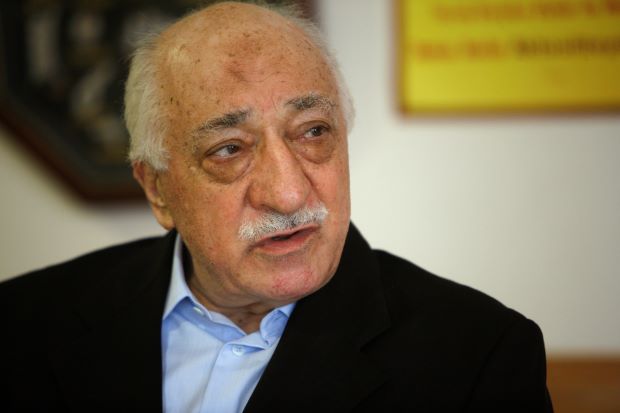Fethullah Gulen, Turkish cleric and Erdogan rival, dies at 83

By Ben Hubbard
ISTANBUL — Fethullah Gulen, the preacher who founded an international Islamic movement and was a major ally of President Recep Tayyip Erdogan of Turkey before being accused of plotting a failed coup against him in 2016, has died. He was 83.
Gulen died late Sunday (20) in a hospital in the United States, where he had lived in self-imposed exile beginning in 1999, according to the social media accounts of Herkul, a website associated with his movement. It did not mention a cause of death. A prominent follower, Ekrem Dumanli, said in an online interview that Gulen had been hospitalized for complications related to heart and kidney failure.
During his own rise as an Islamist politician in a staunchly secular country, Erdogan found useful allies in Gulen’s followers, who held prominent positions in Turkey’s judiciary, police forces and news media. But the two men later became enemies, and in 2016 the Turkish government designated Gulen’s movement a terrorist organization.
Turkey’s foreign minister, Hakan Fidan, on Monday (21) confirmed Gulen’s death, calling him the leader of a “dark organization.” Suggesting that Gulen’s movement still posed a threat to Turkey, Fidan urged its followers to cut ties.
“With this death, the spell on them should be removed,” he said.
Gulen began his career as a provincial preacher in Turkey but gradually amassed a large following that grew into an international movement called Hizmet, or ‘service’ in Turkish. At its height, Hizmet ran schools in Turkey and elsewhere in the world. The movement promoted a vision of Islam that was friendly to the West and supported free markets, science and interfaith dialogue.
“Our general philosophy is to open up to all of humanity with love, while one of our feet is in our own world of thought,” Gulen said in a 2014 interview with BBC Turkish.
But Gulen’s detractors, and his enemies, accused his movement of covertly working toward more sinister goals to attain influence within the Turkish state.
For Erdogan, however, Gulen’s followers, known by other Turks as Gulenists, were valuable partners. For more than a decade, his Justice and Development Party embraced them, angering Turks who said the two Islamist groups were working together to increase the role of Islam in public life.
But that relationship began to break down, taking a significant hit in 2013 when Turkish prosecutors investigated government officials close to Erdogan for corruption. Then the prime minister, Erdogan said the investigations had been concocted by a “criminal gang” with foreign links — a clear reference to the Gulenists — and dismissed dozens of officials involved in the investigation, including the Istanbul police chief.
The alliance completely collapsed after the 2016 coup attempt, when parts of the Turkish military using tanks and fighter jets attacked government institutions, bombed the parliament building in Ankara and attempted to kidnap Erdogan. About 250 people had been killed by the time the Turkish government quashed the rebellion.
Erdogan blamed Gulen for plotting the failed coup and began a vast purge in its aftermath, imposing a state of emergency for two years, detaining 100,000 people and purging 150,000 public employees from their jobs. More than 8,000 military personnel were prosecuted on charges of complicity in the insurrection.
The crackdown shuttered Gulenist schools and newspapers in Turkey and effectively destroyed the movement as an overt force in Turkish society and politics. Many of its prominent figures ended up in exile.
Gulen repeatedly denied that his group had anything to do with the attempted coup and lived a largely reclusive life in rural Pennsylvania. That fuelled accusations from Erdogan and other Turkish officials that the preacher was a US asset who had been deployed to weaken Turkey.
“The coup plotter is in your country,” Erdogan said in 2016, addressing the United States. “You are nurturing him there. It’s out in the open.”
The Turkish government cancelled Gulen’s Turkish passport in 2015 and tried for years to have the cleric extradited from the United States to stand trial. The United States never agreed to send him back to Turkey, exacerbating tensions between the two countries.
In a guest essay published in The New York Times in 2016, Gulen said he had always taught “inclusive and pluralist Islam,” promoted democracy and opposed armed rebellion.
He said Erdogan’s accusations against him revealed the Turkish leader’s “systematic and dangerous drive toward one-man rule.”
-New York Times


Comments are closed, but trackbacks and pingbacks are open.